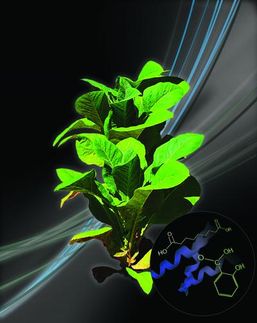CytRx Initiates Broad RNAi Program to Develop Novel Therapies for Treating Major Diseases Associated With CMV
Advertisement
Los Angeles, California - Further expanding its collaboration with a world pioneer in RNA interference (RNAi) technology, CytRx Corporation today announced it has signed a new agreement with the University of Massachusetts Medical School (UMMS) under which CytRx will fund research at UMMS for the further development of proprietary gene silencing technology for use in the treatment of diseases caused by cytomegalovirus (CMV), with an initial focus on CMV retinitis.
This program provides CytRx with worldwide commercial rights under an exclusive license with UMMS to any potential products that are developed based on this cutting-edge technology. It has been estimated that the health care burden of CMV infection is more than $4 billion per year in the United States alone, according to the National Academy of Sciences' Institute of Medicine.
Steven A. Kriegsman, CytRx's chief executive officer, said "The key to the UMMS technology for CMV retinitis is the delivery method. Because CMV retinitis is localized in the eyes, it can potentially be treated via direct delivery of RNAi compounds into the eye, itself, at the site of the infection. We are hopeful that this technology will demonstrate that RNAi can work in humans, which will be an enormous breakthrough, and plan to quickly move into clinical trials following successful completion of the research that will be funded at UMMS. Our strategy is to develop a RNAi therapeutic for CMV retinitis and then to expand our collaboration efforts into developing RNAi therapeutics for other CMV indications."
Kriegsman said that Timothy Kowalik, Ph.D., Assistant Professor in the Department of Molecular Genetics & Microbiology at UMMS, will head the CMV research program. Dr. Kowalik performed his postdoctoral research in the lab of Eng-Shang Huang, Ph.D., one of the world's leading CMV investigators. Dr. Kowalik has also won numerous awards, including the prestigious American Heart Association's Scientific Development Award for his investigations linking restenosis occurrence with CMV reactivation.
CMV is a herpes virus, part of the family of viruses that cause genital herpes, cold sores, or fever blisters, chicken pox and infectious mononucleosis. CMV is present in nearly everyone, although a healthy immune system in healthy individuals can successfully fight the virus by developing antibodies. People with impaired immunity, however, such as HIV/AIDS patients or organ transplant recipients, are extremely susceptible to CMV through reactivation of the virus. CMV is the most common type of virus that affects HIV patients.
"We are excited by the dynamic potential RNAi gene silencing brings to fighting this disease," said Kriegsman.
CMV retinitis, a serious vision-threatening infection that can lead to permanent blindness, affects up to 46% of all immunocompromised people, including organ transplant recipients and AIDS patients. Approximately 800,000 reported cases of AIDS exist in the United States, with up to 46% of these patients suffering from retinitis. According to the World Health Organization, in December 2002, more than 42 million people worldwide were living with HIV/AIDS.
The CMV agreement is part of CytRx's broad-based strategic alliance with UMMS utilizing RNAi technology, which also includes exclusive licensing agreements for the use of RNAi in the development of therapeutic products to treat obesity, type 2 diabetes and ALS. Discovered in 1997 by UMMS faculty member Craig Mello, Ph.D. in collaboration with Andrew Fire, Ph.D., at the Carnegie Institution of Washington, RNAi is becoming an increasingly important tool in biomedical research. The technology essentially uses ribonucleic acid to selectively silence genes within a living cell. Beyond providing researchers with a new way to understand gene function, the platform technology may also offer a comprehensive means of advancing effective new drug development.
Other news from the department business & finance
Most read news
More news from our other portals
See the theme worlds for related content
Topic world Antibodies
Antibodies are specialized molecules of our immune system that can specifically recognize and neutralize pathogens or foreign substances. Antibody research in biotech and pharma has recognized this natural defense potential and is working intensively to make it therapeutically useful. From monoclonal antibodies used against cancer or autoimmune diseases to antibody-drug conjugates that specifically transport drugs to disease cells - the possibilities are enormous

Topic world Antibodies
Antibodies are specialized molecules of our immune system that can specifically recognize and neutralize pathogens or foreign substances. Antibody research in biotech and pharma has recognized this natural defense potential and is working intensively to make it therapeutically useful. From monoclonal antibodies used against cancer or autoimmune diseases to antibody-drug conjugates that specifically transport drugs to disease cells - the possibilities are enormous



























































